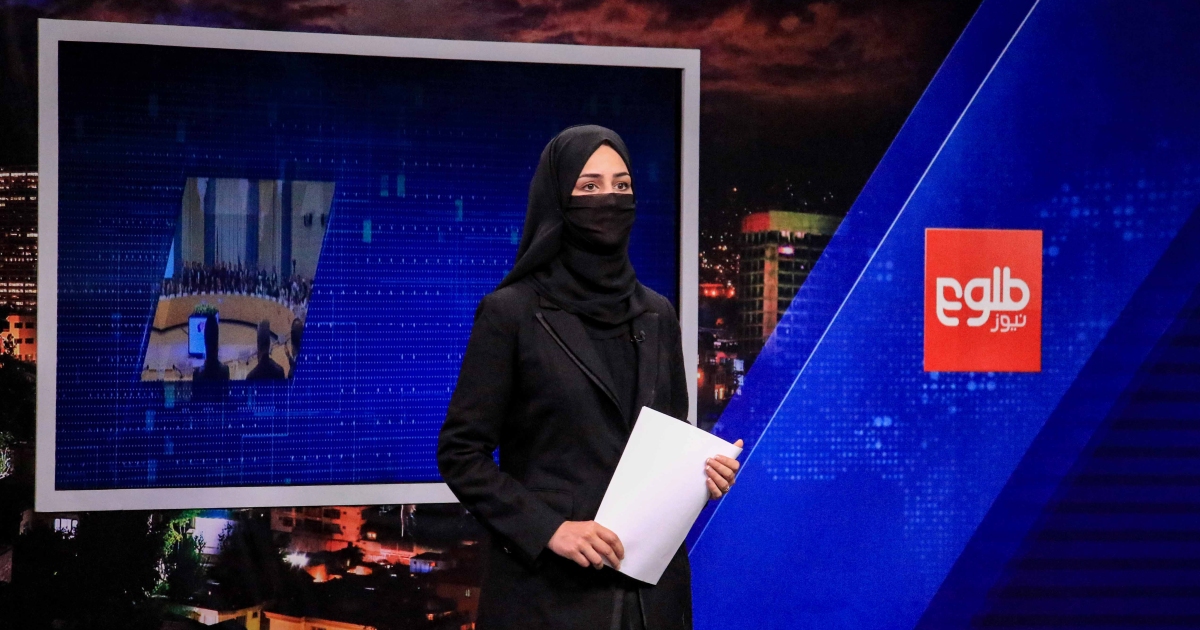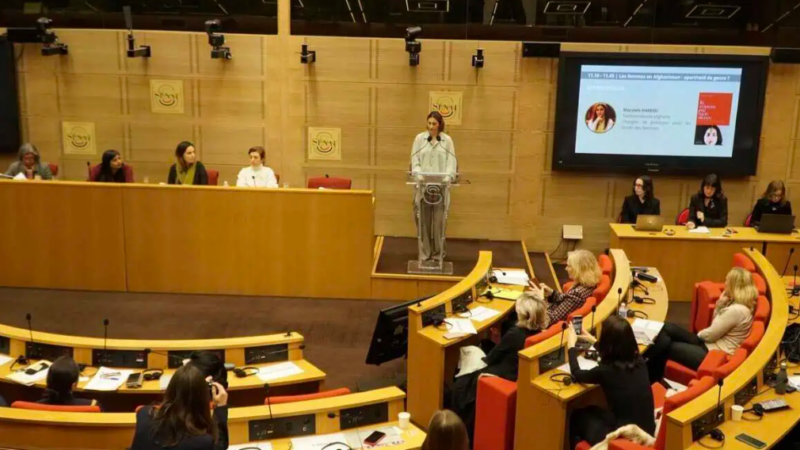Women have no future in Taliban regime in Afghanistan

The Constituting half of Afghanistan’s nearly 40 million population, the mothers and daughters of Afghanistan are suffering and struggling for their fundamental rights like education and health. The Ministry for the Propagation of Virtue and the Prevention of Vice spokesman, Akif Mahajar has given a decree under the leadership of Islamic Emirate supreme leader Maulavi Hibatullah Akhundzada legitimising the hijab. The decree warned women to follow the protocols of covering themselves or face the consequences and be responsible for the fate of the men in their families. In their three-page statement, the Taliban office emphasised the dress code for women employing the strategy of encouragement and punishment. And, in case it is not followed, it will lead to women’s guardians being summoned and punished as per the Taliban court.
The Taliban have asked the mosques, media and madrassas to propagate the message about the dress code for women and emphasise obedience by women. The Taliban is known for ruling as per Quran, Sunnah and Hadees. As per the Quran verses 30 and 31 of Surah 24, the holy command asks both men and women to maintain dignity and keep glances low while interacting with the opposite sex. There have been numerous interpretations of these commandments from the Golden Age to the contemporary times. But what is missed while making such loose interpretations by the Islamic scholars is the contextual references. In the pre-Islamic era, the men and women did not have any customary tradition of dressing in any particular style. Therefore, this commandment was made for both genders to ensure morality in society. Unfortunately, the moral police in contemporary Islam erased these contexts from the collective memory and imposed fundamentalist opinion. An example which is probably fresh in the public memory could be the liberal attitude of Islamic scholar Maulana Maududi’s wife, Mahmudah Begum in the mid-20th century. She disregarded all Islamic laws about women, like wearing hijab and moving around the city without a male chaperone.
These double standards amongst the fundamentalist have caused worrisome situations for women in Afghanistan. The Taliban is making a systematic move to enforce a policy of segregating males and females. The interdependence of women’s education and women’s health is the most affected in the current regime. There is a threat to survival for women with restrictions on movement, education and freedom of expression. Many locals have reported that the Taliban has stopped women from using smart phones and the Women’s Affairs Ministry are extorting money in return for essential protection. Women are also being ignored and deprived of basic medical facilities due to the lack of female healthcare workers and the shutting down of health clinics. Almost 90 per cent of the health clinics are funded by international donors who are reluctant to send any money, fearing misuse of the funds. One of the particular concerns for women in Afghanistan is their reproductive health, as there are only a handful of women obstetricians. As a result, there is a high rate of infant mortality and miscarriages. This is bound to affect women’s health and put them in a more disadvantageous situation.
Afghanistan is a member of the International Covenant on Civil and Political Rights (ICCPR) and the International Covenant on Economic, Social, and Cultural Rights. And as per the ICCPR, article 6, 7 and 12 provides the right to life, freedom from torture and other cruel treatments, and the right to medical care. However, given the Taliban’s violation of international laws, many women have suffered, while the Taliban interprets these laws as per their cultural and religious perspectives. In February, around four women health workers were killed in Kunduz and Takhar provinces resulting in the suspension of the vaccination program by the world bodies like the United Nations International Children’s Emergency Fund and World Health Organization. Apart from health and education, women in media have also suffered repression by the Taliban authorities, and approximately 80 per cent of women have lost their jobs. Many have been prevented from venturing outside their homes.
While the Taliban is enjoying all the worldly pleasures, their regressive attitude is dictating and defining the destiny of 18 million women of Afghanistan who are continuing their long battle for health, education, and social rights facing the barbaric Taliban daily. With no immediate solution in sight, it is clear that these women are staring at a bleak future.






